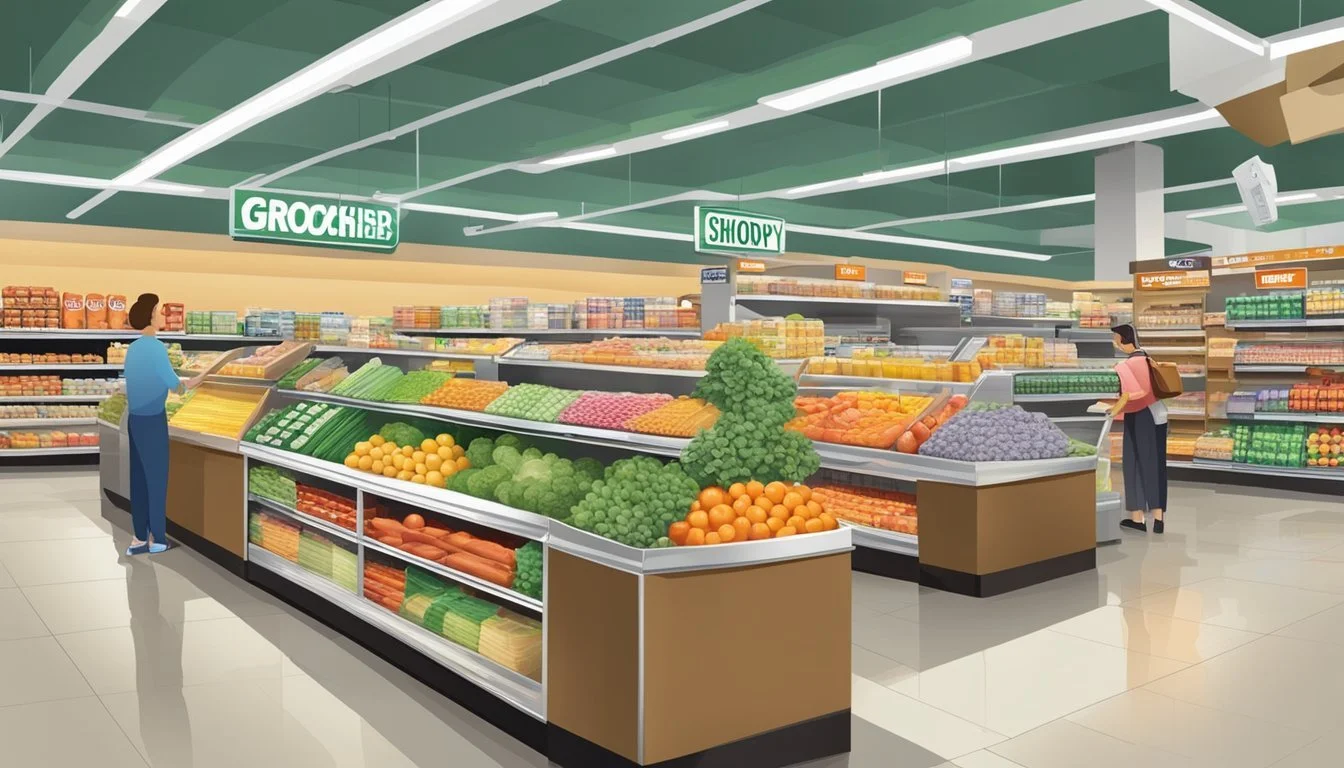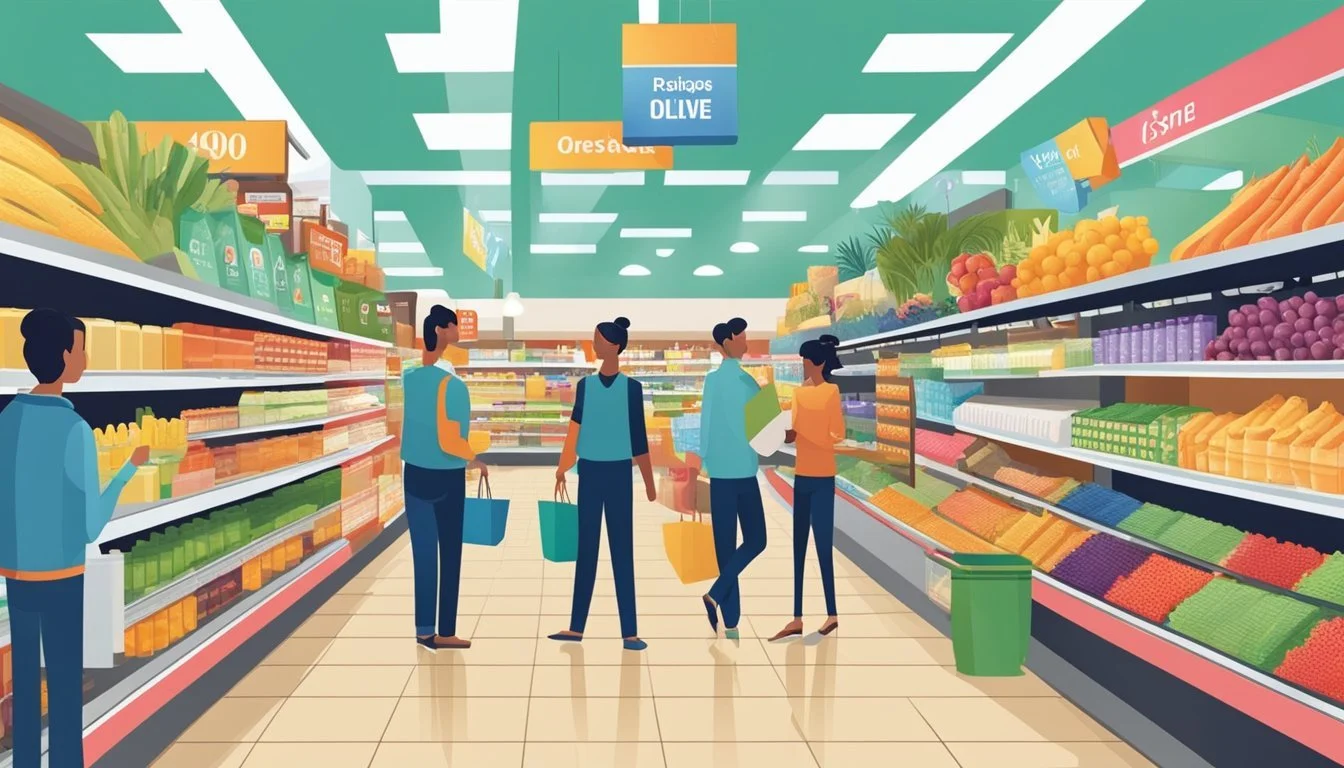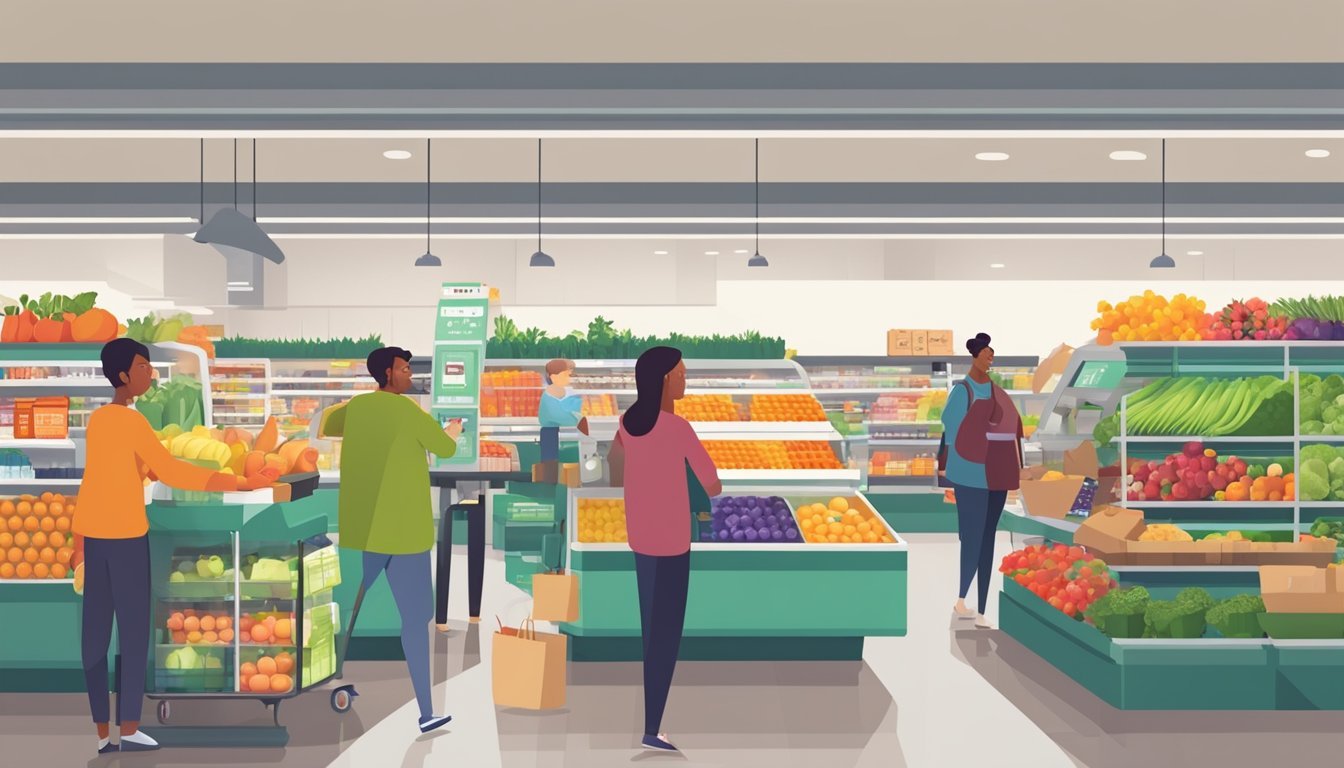Brookshire Grocery Company vs Stop & Shop
Which Retailer Offers Superior Value and Selection?
Choosing the right grocery store can significantly impact your shopping experience and budget. Brookshire Grocery Company and Stop & Shop are two prominent supermarket chains in the United States, each with its own unique offerings and customer base.
Brookshire Grocery Company, founded in 1928, operates primarily in Texas and neighboring states. The company has built a reputation for quality products and community involvement. Stop & Shop, on the other hand, has a strong presence in the northeastern United States and has been serving customers since 1914.
Both Brookshire Grocery Company and Stop & Shop offer competitive prices and a wide range of products, but the better choice ultimately depends on individual preferences and location. Factors such as store layout, product selection, customer service, and loyalty programs can all influence a shopper's decision. By examining these aspects, consumers can make an informed choice between these two grocery giants.
Company Overviews
Brookshire Grocery Company and Stop & Shop are two prominent grocery chains with distinct histories and market presences. Their origins, growth trajectories, and current business models reflect different approaches to serving customers in the competitive retail grocery industry.
History and Expansion
Brookshire Grocery Company (BGC) began in 1928 when Wood T. Brookshire opened a small store in Tyler, Texas. The family-owned business has since expanded to over 200 stores across Texas, Louisiana, Arkansas, and Oklahoma. BGC operates under brands like Brookshire's, Super 1 Foods, and Spring Market.
Stop & Shop traces its roots to 1914 in Somerville, Massachusetts. It has grown into a major supermarket chain in the Northeast, with over 400 stores across New York, New Jersey, and New England. In 1996, Stop & Shop became part of Ahold Delhaize, a global retail group.
Business Models and Market Presence
BGC maintains a strong regional focus in the southern United States. The company operates four distribution centers to support its stores. As a family-owned business, BGC emphasizes community involvement and personalized customer service.
Stop & Shop has a larger footprint on the East Coast. It faces stiff competition from chains like ShopRite and Walmart. Stop & Shop's business model includes larger format stores and a wider product selection. The chain benefits from Ahold Delhaize's resources and scale in areas like supply chain and technology.
Product and Service Comparison
Brookshire Grocery Company and Stop & Shop offer distinct product selections and services. Their offerings vary in terms of variety, quality, convenience, pricing, and additional amenities.
Variety and Availability of Goods
Brookshire Grocery Company stocks a wide range of products across various categories. Their stores feature fresh produce, meats, dairy, bakery items, and frozen foods. They also carry general merchandise and household essentials.
Stop & Shop boasts an extensive selection of goods. Their stores typically include well-stocked produce sections, deli counters, bakeries, and meat departments. They offer a mix of national brands and their own private label products.
Both chains prioritize keeping popular items in stock. However, availability may vary by location and season. Stop & Shop's larger store footprint often allows for a broader product range compared to some Brookshire locations.
Quality and Freshness
Brookshire Grocery Company emphasizes fresh, high-quality products. They source local produce when possible and maintain strict quality control standards for their meats and baked goods.
Stop & Shop also focuses on freshness, particularly in their produce and bakery departments. They offer a variety of organic options and have implemented programs to reduce food waste while maintaining quality.
Both chains have recall procedures in place to address any quality or safety concerns promptly. Customer feedback suggests satisfaction with the overall quality of products at both stores.
Convenience and Shopping Experience
Brookshire Grocery Company stores are generally smaller and easier to navigate. They often have a more personal, community-oriented atmosphere. Many locations offer online ordering and curbside pickup services.
Stop & Shop provides a more expansive shopping environment. Their larger stores include wider aisles and more checkout lanes. They offer self-checkout options and mobile scan-and-go technology in many locations.
Both chains have loyalty programs that provide personalized deals and discounts. Stop & Shop's app allows customers to clip digital coupons and track rewards points easily.
Pricing and Value for Money
Brookshire Grocery Company aims to offer competitive pricing on everyday essentials. They run weekly sales and provide digital coupons through their loyalty program.
Stop & Shop is known for its aggressive pricing strategies. They frequently offer deep discounts on select items and run buy-one-get-one-free promotions. Their private label products often provide good value for money.
Both chains have competitive pricing in their respective markets. However, Stop & Shop's larger scale may allow for more frequent and substantial discounts on certain items.
Additional Services
Brookshire Grocery Company offers pharmacy services in many locations. Some stores feature floral departments and prepared food sections.
Stop & Shop provides a broader range of additional services. Most locations include pharmacies, and many have fuel stations. They also offer grocery delivery services in partnership with Instacart.
Both chains have catering options and sell gift cards. Stop & Shop's larger stores often include more expansive deli and prepared foods sections, providing quick meal solutions for busy customers.
Customer Engagement and Loyalty Programs
Brookshire Grocery Company and Stop & Shop employ distinct strategies to foster customer loyalty and community connections. Both retailers recognize the importance of rewarding shoppers and giving back to their local areas.
Loyalty Rewards and Promotions
Brookshire's YourPoints program allows customers to earn points on purchases, which can be redeemed for discounts on fuel or groceries. Members receive personalized deals based on their shopping habits. Stop & Shop's GO Rewards offers similar benefits, with points earned on eligible items.
The GO Rewards program provides digital coupons and allows shoppers to load deals directly to their cards. Brookshire's sends targeted promotions via email and their mobile app. Both chains offer special birthday rewards to loyalty members.
Stop & Shop's partnership with Shell provides additional fuel savings opportunities. Brookshire's occasionally runs sweepstakes for loyalty program members, offering prizes like gift cards or vacation packages.
Community Relations and Corporate Responsibility
Brookshire Grocery Company supports local food banks through their Partners in Caring program. They donate food and funds to combat hunger in their operating areas. The company also sponsors youth development initiatives and educational scholarships.
Stop & Shop focuses on fighting childhood hunger through their Food for Friends campaign. They partner with regional food banks and local schools to provide meals to children in need. The chain also supports pediatric cancer research through various fundraising efforts.
Both retailers encourage employee volunteerism in community projects. Brookshire's and Stop & Shop prioritize sourcing products from local farmers and producers when possible, supporting regional economies.
Operational Excellence and Innovations
Brookshire Grocery Company and Stop & Shop have implemented various strategies to enhance their operations and drive innovation. Both chains focus on improving supply chain efficiency and adopting sustainable practices to meet customer needs and reduce environmental impact.
Supply Chain and Logistics
Brookshire Grocery Company recently partnered with Logile to upgrade its workforce management systems across 209 retail locations. This implementation aims to improve flexibility and operational effectiveness in stores, distribution centers, and corporate offices.
Stop & Shop utilizes a network of automated fulfillment centers to support its e-commerce operations. These facilities use robotics and AI to efficiently pick and pack online orders, reducing delivery times and enhancing customer satisfaction.
Both grocery chains have invested in modernizing their distribution networks. Brookshire operates regional distribution centers to serve its stores across Texas, Louisiana, Arkansas, and Oklahoma. Stop & Shop maintains strategically located warehouses to supply its stores in the northeastern United States.
Sustainability and Ethical Practices
Brookshire Grocery Company focuses on community engagement and local sourcing. The company partners with regional farmers and producers to offer fresh, locally-grown products in its stores.
Stop & Shop has implemented several sustainability initiatives. These include:
Reducing food waste through partnerships with food banks
Installing energy-efficient lighting and refrigeration systems
Offering more plant-based and environmentally friendly product options
Both supermarket chains have increased their emphasis on ethical sourcing practices. They work with suppliers to ensure fair labor standards and promote animal welfare in their supply chains.
Brookshire and Stop & Shop continue to expand their organic and natural product offerings to meet growing consumer demand for healthier, sustainably produced foods.
Comparative Analysis
Brookshire Grocery Company and Stop & Shop differ significantly in their market presence, operational scale, and customer perception. These factors shape their competitive positions in the grocery industry.
Geographical Reach and Store Locations
Brookshire Grocery Company operates primarily in Texas, Louisiana, and Arkansas, with a concentrated presence in East Texas. The company has a smaller footprint compared to Stop & Shop, focusing on serving communities in specific regions.
Stop & Shop boasts a larger geographical reach, with over 400 stores across the Northeast. Its locations span Massachusetts, Connecticut, Rhode Island, and parts of New York and New Jersey. This broader coverage gives Stop & Shop an advantage in serving a more diverse customer base across multiple states.
Market Share and Industry Impact
Brookshire Grocery Company, while a significant player in its operating regions, has a smaller overall market share compared to Stop & Shop. The company's sales reached approximately $3.8 billion in recent years, indicating steady growth.
Stop & Shop, as part of the larger Ahold Delhaize group, wields more substantial industry influence. This backing allows Stop & Shop to leverage economies of scale, potentially offering more competitive pricing and a wider range of products.
The Northeast grocery market is highly competitive, with chains like Wegmans and Hannaford also vying for market share. Stop & Shop's extensive presence in this region positions it as a major contender in the industry.
Brand Perception and Reputation
Brookshire Grocery Company has built a reputation for community involvement and customer service in its operating areas. The company's smaller size allows for a more personalized shopping experience, often appreciated by customers in smaller towns and cities.
Stop & Shop, with its longer history and wider reach, has established itself as a familiar name in Northeast households. The chain is known for its loyalty programs and diverse product offerings, including a range of private-label items.
Both stores prioritize clean environments and quality products. However, customer perceptions can vary based on individual store management and local competition. Stop & Shop faces challenges from premium competitors like Wegmans, while Brookshire's competes with regional chains and national players expanding into its territories.






